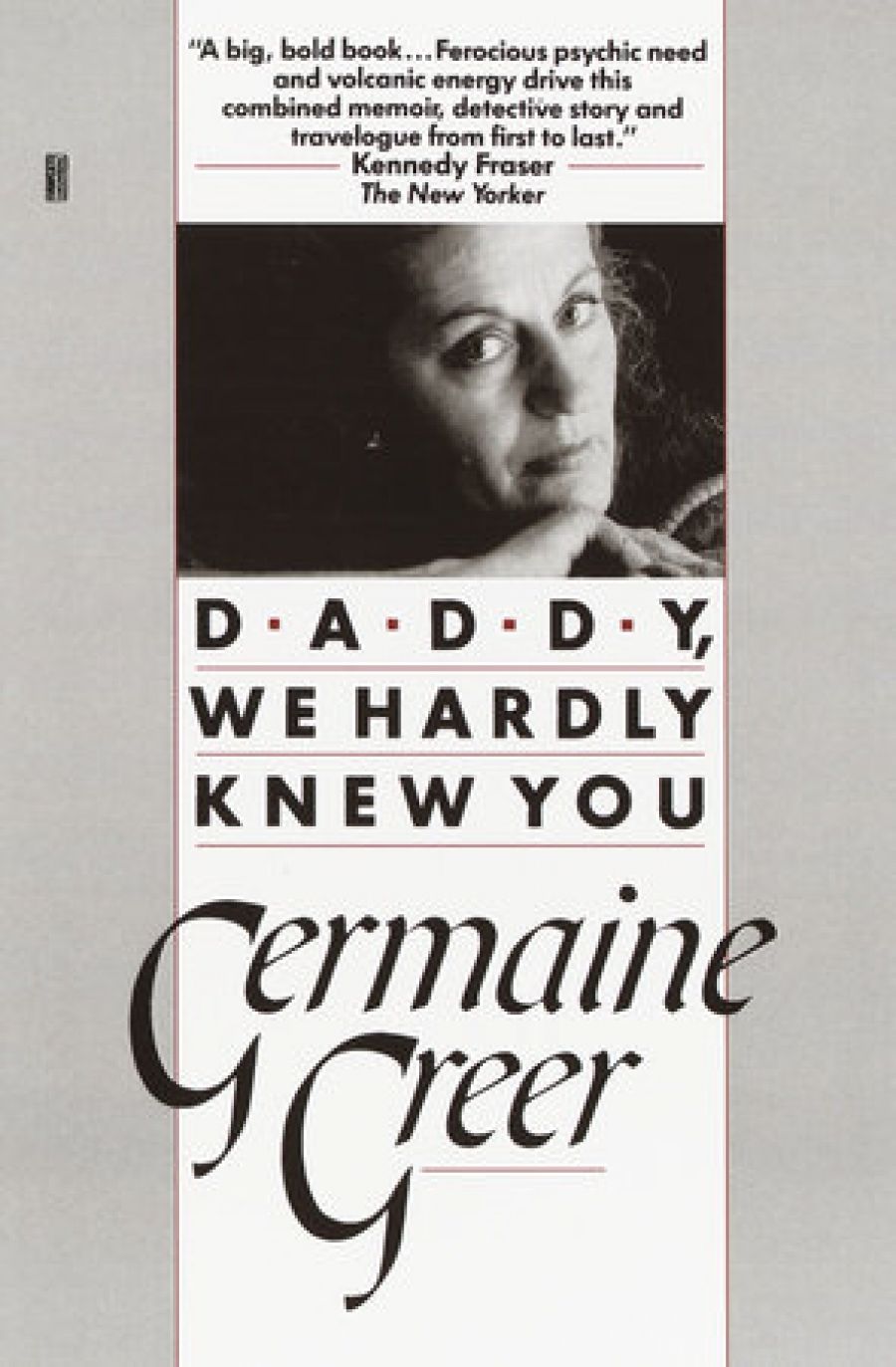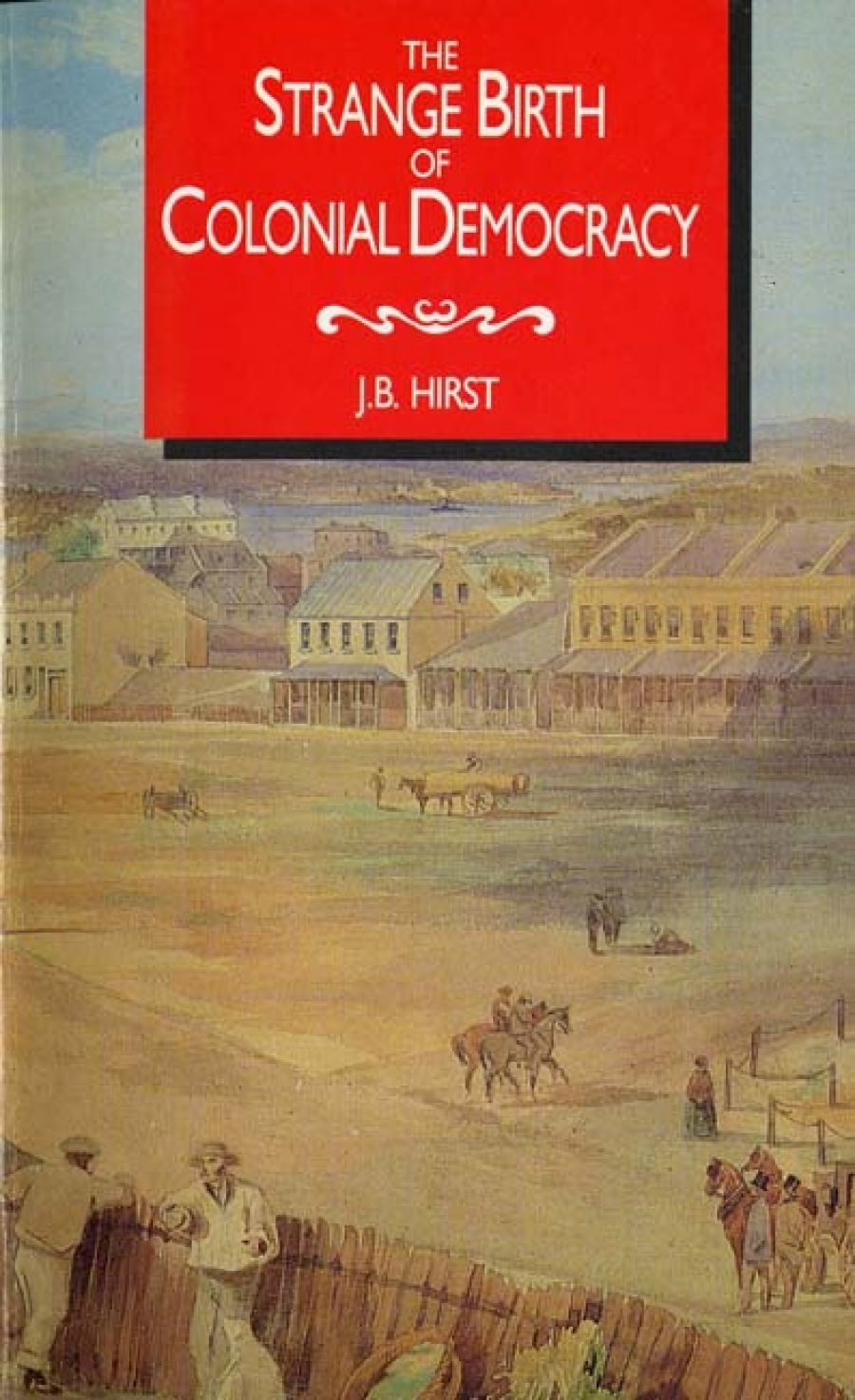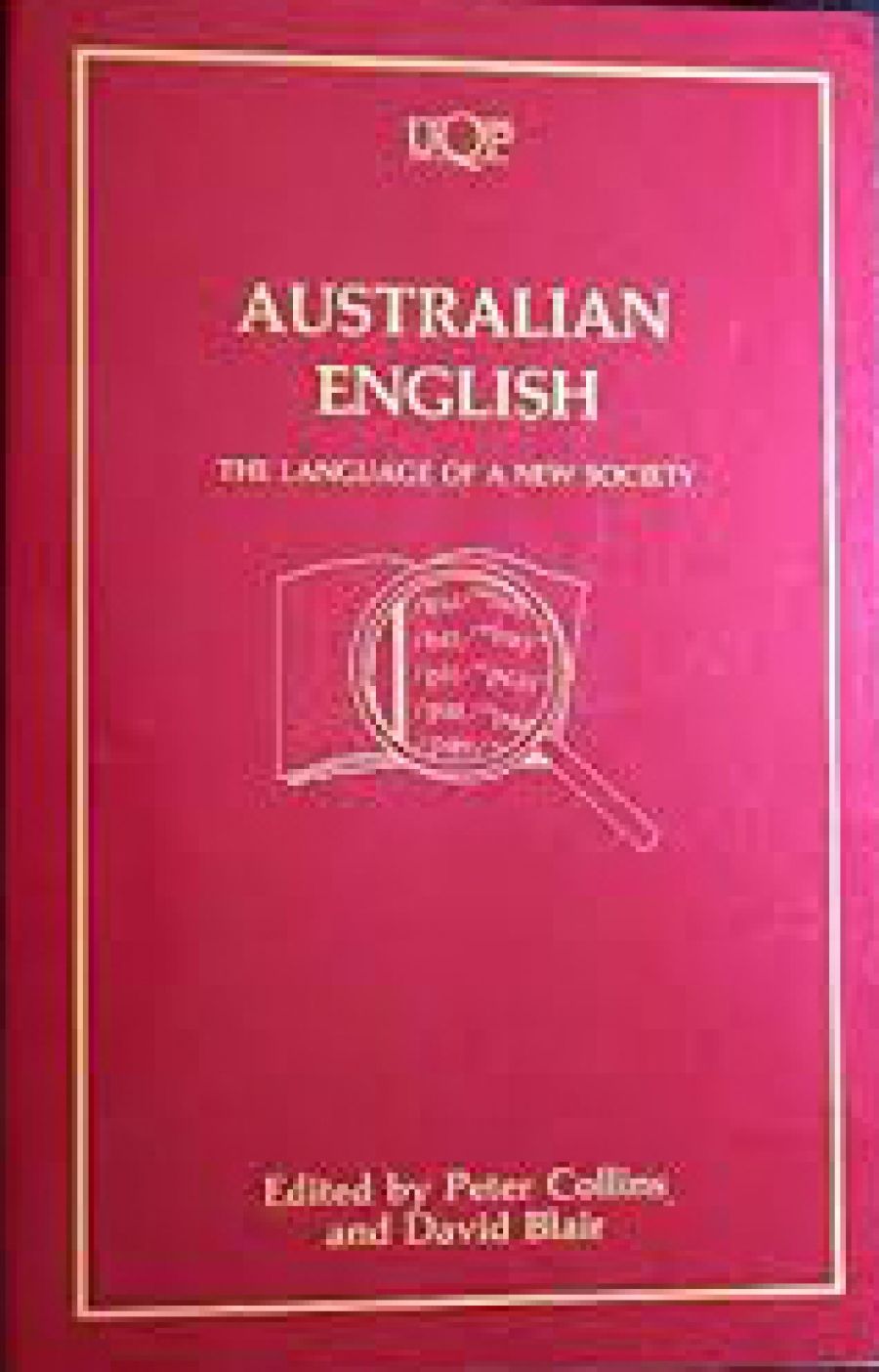
- Free Article: No
- Contents Category: Biography
- Review Article: Yes
- Online Only: No
- Custom Highlight Text:
There are few people on earth I would rather read than Germaine Greer, mad or sane. Whatever reservations I might want to express about Daddy We Hardly Knew You, it is some testament to its compelling power that I read most of it strung-out with fatigue from checking proofs some time towards dawn and I still found it difficult to stop reading.
- Book 1 Title: Daddy We Hardly Knew You
- Book 1 Biblio: Hamish Hamilton, $29.99 hb, 311 pp,
There are few people on earth I would rather read than Germaine Greer, mad or sane. Whatever reservations I might want to express about Daddy We Hardly Knew You, it is some testament to its compelling power that I read most of it strung-out with fatigue from checking proofs some time towards dawn and I still found it difficult to stop reading.
Oscar Wilde cannot have been the first human being to be so supremely interesting to himself that other people couldn’t take their eyes off him, but he does seem to have been the first to use this gift to enthrall the press and public to such an extent that the image of the personality he created necessarily outshone any art he produced.
Read more: Peter Craven reviews 'Daddy We Hardly Knew You' by Germaine Greer
Write comment (0 Comments)


